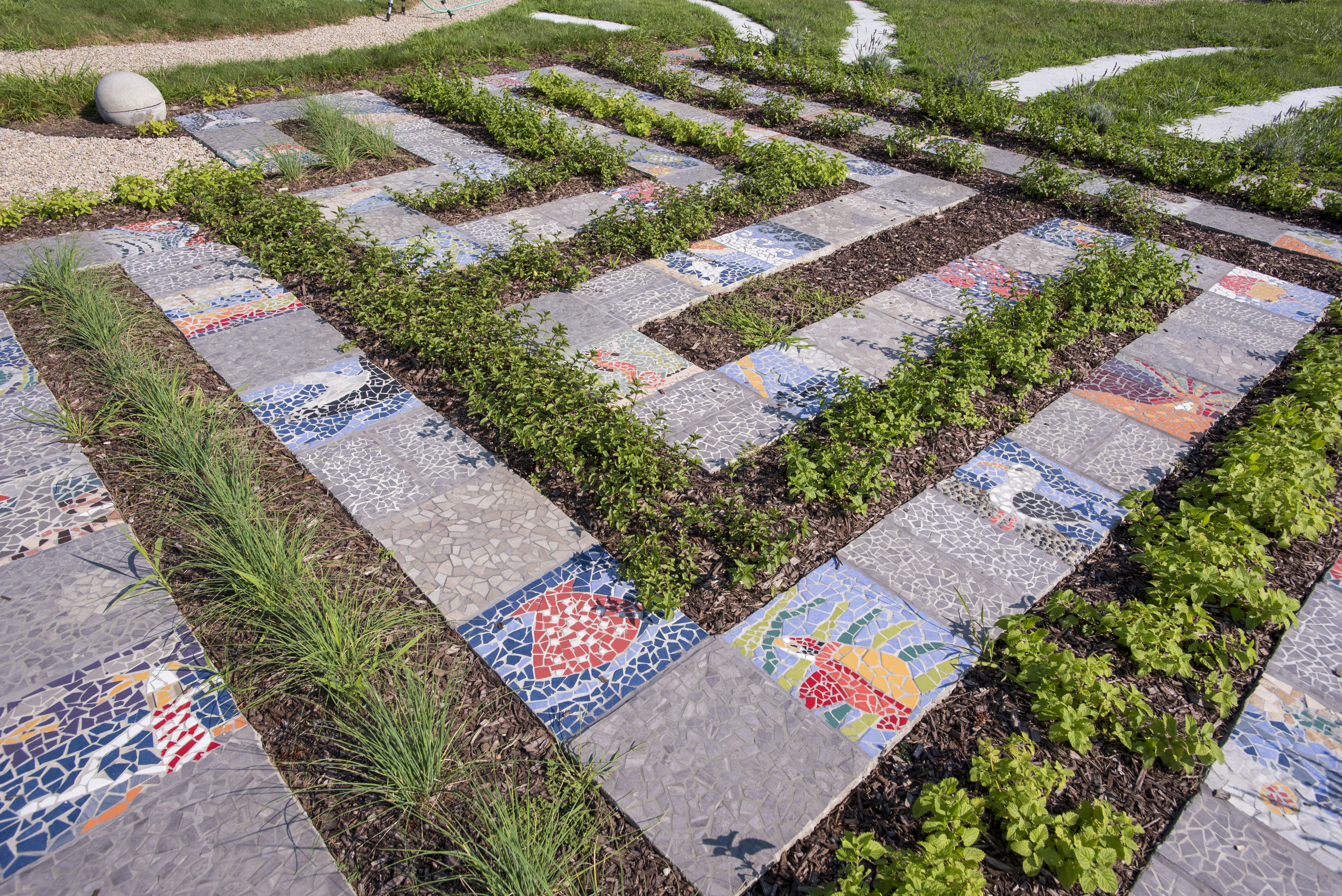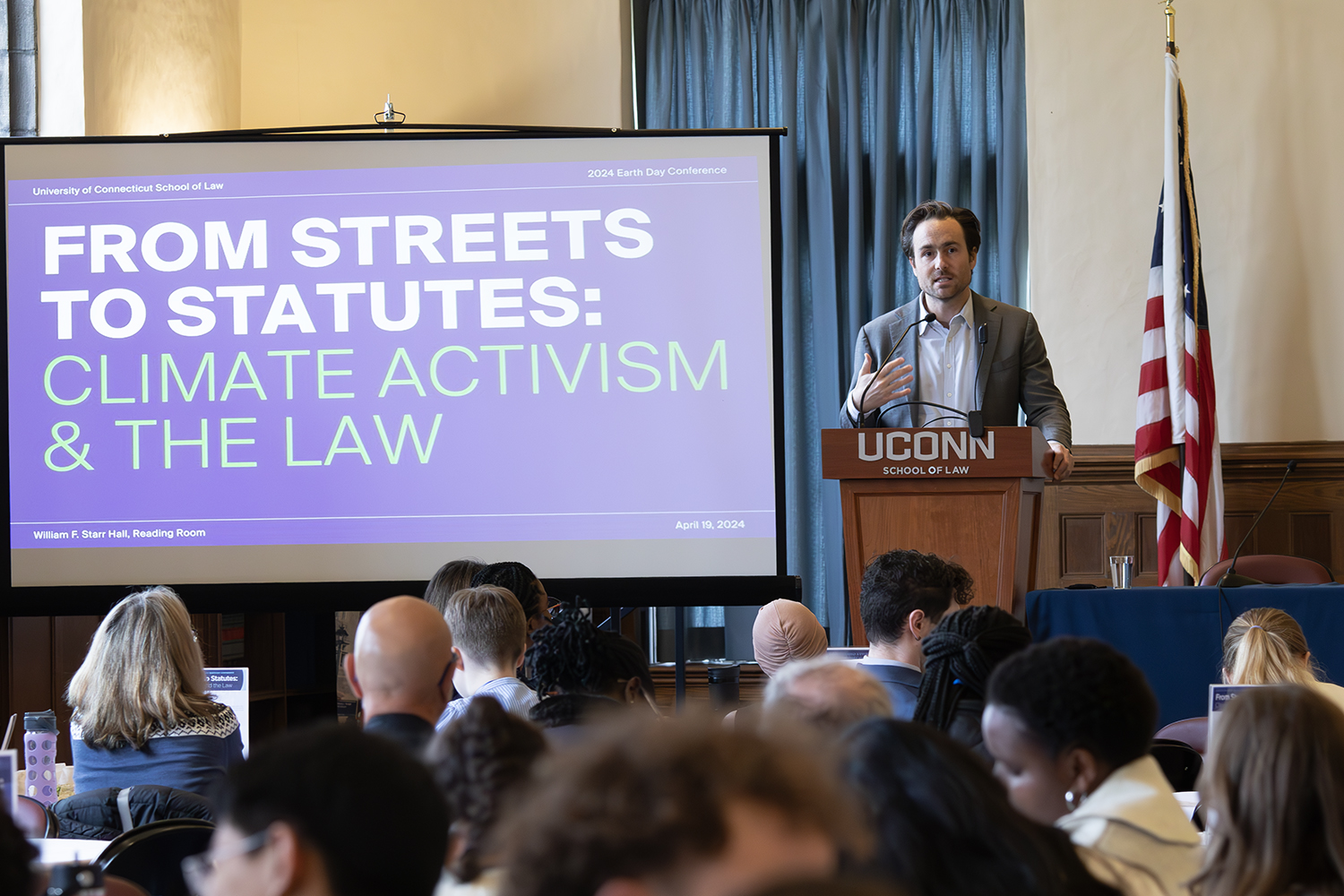There aren’t many places for children to go these days where they don’t hear “Keep your hands to yourself!” or “Get down from there!” And they always seems to be holding some type of electronic screen, with a bottle of hand sanitizer not far away.
A new “cognitive garden” recently built at UConn Avery Point is a place for those rules to be broken.
Cognitive gardens are landscape features designed to encourage learning through the senses, experience, and thought. They tend to be designed for children, but can be enjoyed by people of all ages.
The work began in March 2019 and was completed over the summer, although the process of building a garden like this is never really done.
It’s the brainchild of UConn student Annette Montoya ’20 (CAHNR), who is pursuing an individualized major in landscape design for cognitive development. Montoya has a boatload of life experience in knowing why a garden like this is important. She already has one undergraduate degree and a master’s degree. Montoya is also a 14-year military veteran, who saw active duty in Bahrain after the 9-11 attacks in 2001, and Bosnia.
“I was involved in community-supported agriculture and discovered I loved designing spaces and directing movements,” said Montoya, who lives on a small farm in Waterford. “I then started learning about children, and that the more sensory experiences a child has before the age of seven, the more complex their brain structure will be.”
Montoya applied for an IDEA grant through UConn’s Office of Undergraduate Research with the help of one of her advisors, Jamie Kleinman, an assistant professor of psychology, who is based on the Avery Point campus.
IDEA grants award funding to support student-designed and led programs, including creative endeavors and community service initiatives.
Once the IDEA grant was approved, Montoya went straight to work recruiting workers and volunteers to make the garden a reality.
Students from Grasso Technical High School in nearby Groton built a waterfall and a pollinator garden and did all the planting, including plants and herbs that visitors can pick, touch, and smell. The pollinator garden attracts various species of birds, butterflies, bees, and even bats.
“You want some lavender, you want some oregano, go ahead,” Kleinman said. “Pick them and smell them.”
Mosaic tiles for a labyrinth were made by students at Waterford High School, and those for an amphitheater were done by students at Nathan Hale Arts Magnet School in New London. Three Boy Scout troops in Groton built a “berm whale” made of grass that is perfect for climbing.
The labyrinth is a place for visitors to follow a set path and spend time pondering what is around them.
Volunteers in the building of the garden also included faculty and students from Avery Point and employees from nearby Pfizer.
“This is a new way of framing a garden,” said Kleinman. “It’s not just something to look at, but there are all kinds of features to the garden that really activate your sense of smell, your sense of touch, your sense of balance, and listening. The idea is to have a garden with features that are meant to be interacted with. It’s primarily for children, but really for anyone.”
The new garden makes an especially good complement to the Avery Point campus, a popular place for local residents to bring their families and children to go for walks. The garden, located at the front entrance of the campus near the police station, has a beautiful view of Long Island Sound, which only adds to its appeal.
“I hope that parents let kids run, play, discover, and explore and learn through their senses,” said Montoya. “And that they are not on them at all times, telling them what to do, or directing them. There are so many kids with anxiety. This is a way to get them off their screens and into nature.”
The garden’s designers say they expect it to be popular as well with UConn students.
“The students can go there and think and, ideally, we want the space to a place for student to think and interact,” said Kleinman.
For more information on the Cognitive Garden at UConn Avery Point, please click HERE.



